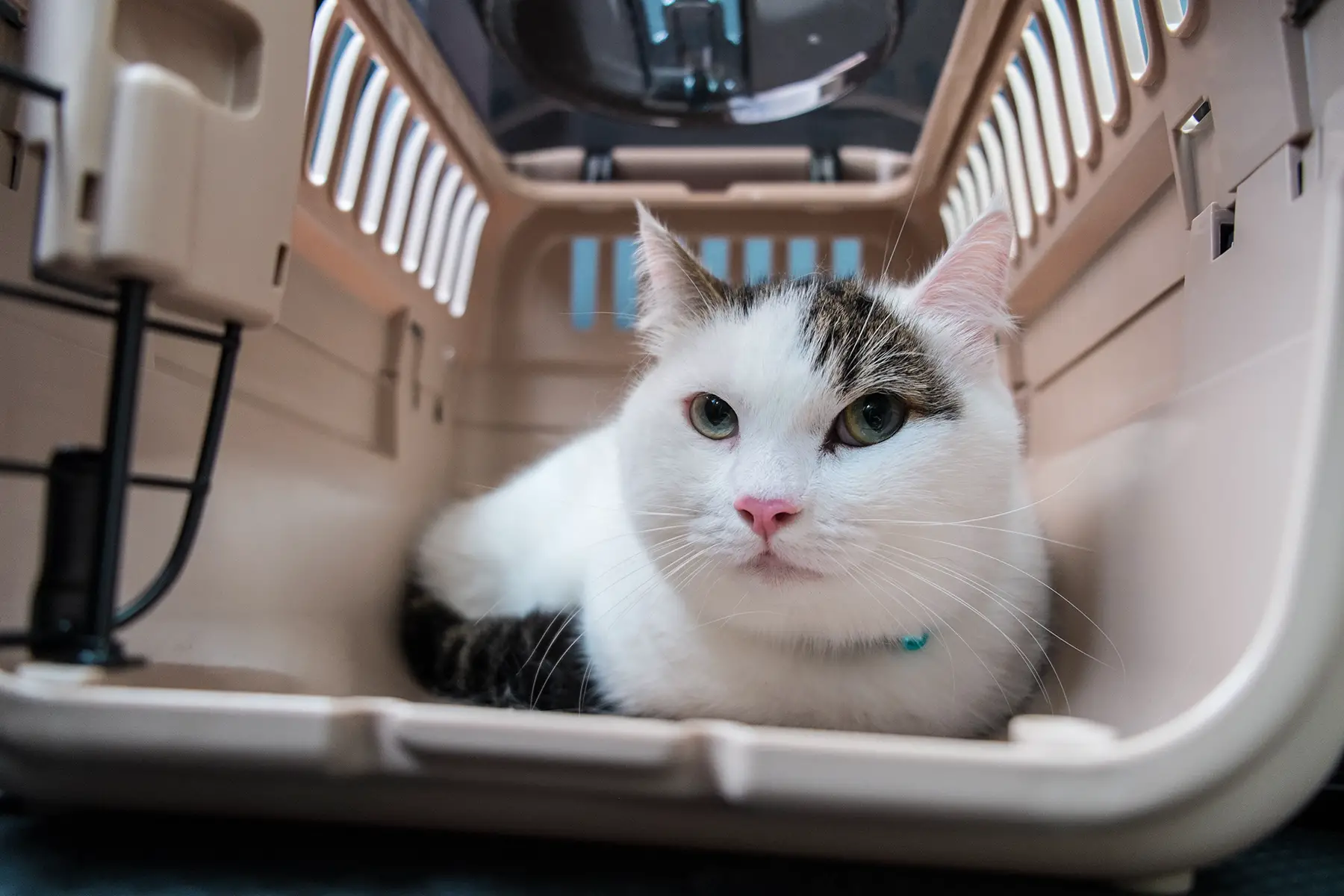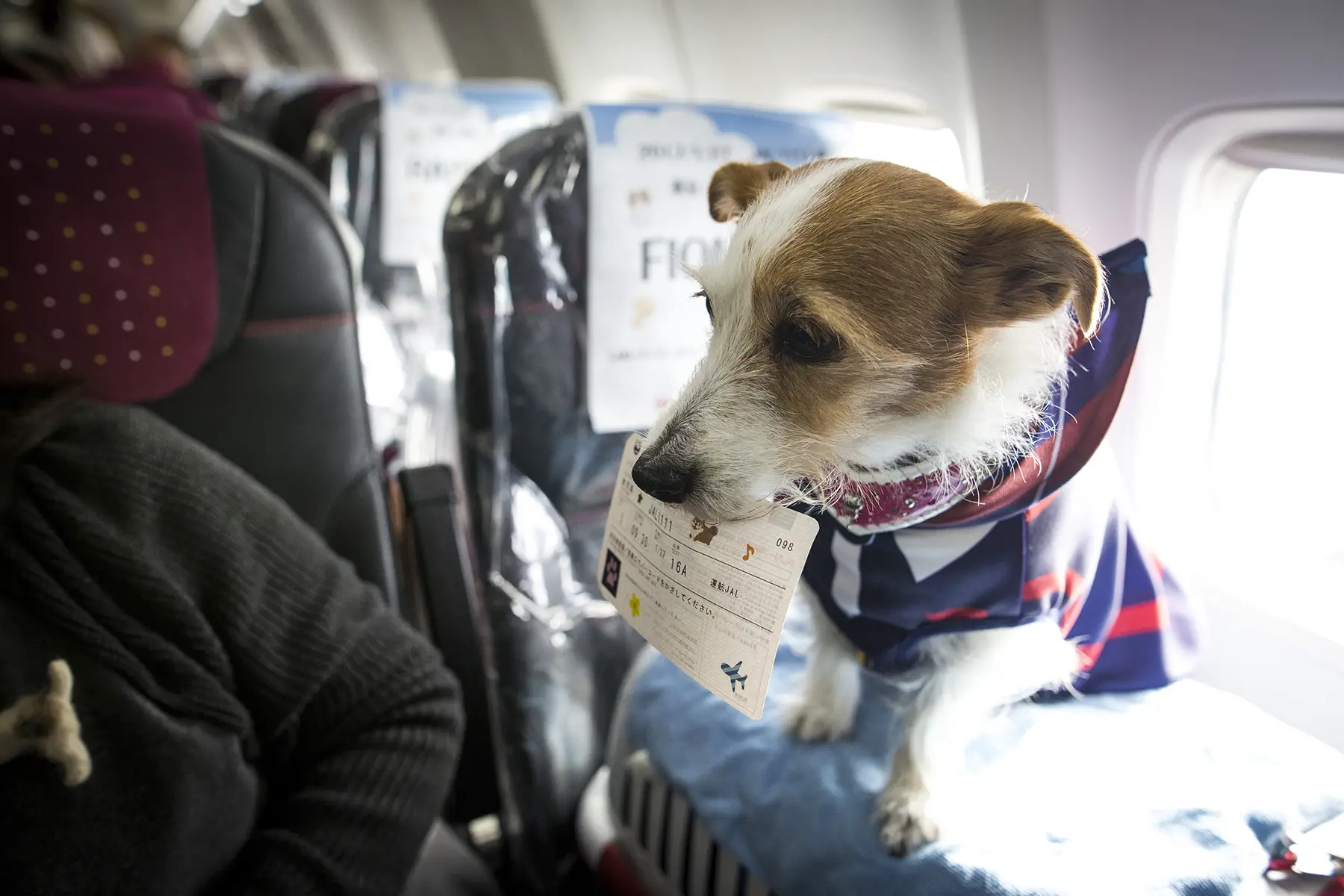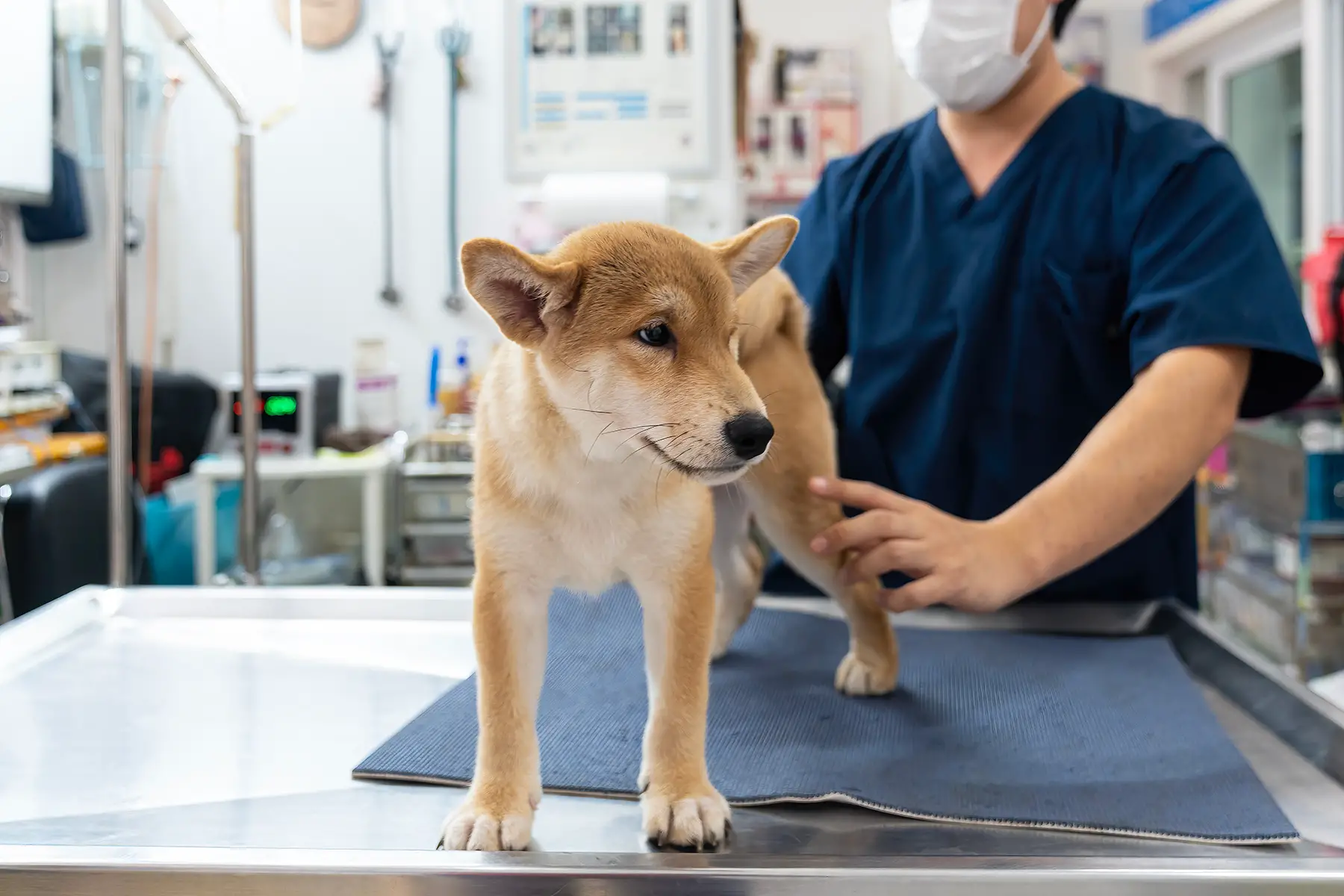Pet (ペット) laws and customs can vary enormously from country to country, which can be an issue if you’re relocating to another part of the world with a creature companion. The good news for expats moving to Japan is that it’s a pet-friendly country and you shouldn’t have many problems importing or acquiring a pet as long as you follow the basic rules.
Read on to find out more about pets in Japan, with sections on:
- Pet culture in Japan
- Adopting Japanese pets
- Bringing or importing pets to Japan
- Registering Japanese pets
- Pet passports in Japan
- Japanese pet insurance
- Pet healthcare in Japan
- Pet stores in Japan
- Japanese pet services
- Lost pets in Japan
- Costs of keeping pets in Japan
- Selling Japanese pets
- Rehoming pets in Japan
- Useful resources
Pet culture in Japan
Pet culture in Japan has grown substantially in recent years. The annual pet market was worth ¥1.4 trillion in 2017.
Cats (猫) have recently overtaken dogs (犬) as the most popular pet in Japan, with the latest figures from the Japan Pet Food Association (JPFA) (ペットフード協会) showing that 9.6 million households have a cat. This equates to 17% of Japan’s total households. 8.5 million households have dogs, and other common pets in Japan include fish (魚), turtles (カメ), small birds (小鳥), rabbits (ウサギ), and insects (昆虫).
Japan’s 2004 Invasive Alien Species Act outlines laws regarding importing certain animal species. Several wild and exotic species are banned or subject to special measures. Some animals, for example, certain monkeys (サル) or reptiles (爬虫類), require permission from municipal authorities (地方自治体). Check with your local Japanese authority if you are unsure about the guidelines for your specific pet.

Japan ranks 23rd out of 51 nations on the 2022 Dog-friendly Country Index from data analysis start-up The Swiftest. In addition, on a scale from A–G, it scores an E on World Animal Protection’s 2020 Animal Protection Index.
Although the 1973 Animal Welfare Act prohibits cruelty to domestic animals and a number of other creatures, parts of the act are vague. Japan scores worse regarding the protection of animals used in farming, scientific research, and recreational activities. The Japan Animal Welfare Society (JAWS) (日本動物福祉協会) is the main animal welfare organization in Japan.
Japanese pet laws
The key pet laws in Japan include:
- Registering all dogs aged over 90 days with your municipal authority
- Vaccinating dogs annually against rabies
- Attaching a license tag to all registered dogs
- Keeping all dogs on a leash in public
- Picking up and disposing of your dog waste
- Only small pets can travel on public transport. They must be kept in a cage (total weight max. 10kg), and pets traveling on trains need a separate ticket.
Failure to adhere to these rules can result in punishments such as hefty fines. For example, if your dog is not leashed and it attacks someone, you could be fined around ¥300,000 according to the Penal Code.
There are also some restrictions on where animals are welcome. For example, many rentals in Japan do not allow pets. Rules for taking dogs into restaurants and cafés vary.

Although it’s not compulsory to microchip pets in Japan, the authorities recommend it, especially for dogs. Since June 2022, pet stores and breeders selling dogs and cats must microchip them (in Japanese) before selling. Any new owners will then need to update the information on the chip regarding ownership.
The Ministry of Health, Labor, and Welfare (厚生労働省 – MHLW) provide more information (in Japanese) about laws on keeping dogs in Japan.
Adopting Japanese pets
Other than the registration and licensing requirements for dogs, you don’t need to meet any general requirements to own pets in Japan. If you want to get a pet once you are in the country, you have two main options – buying a pet or adopting one from a shelter (保護施設) or rescue service.
Buying pets in Japan
You can buy pets in Japan from high street stores, online stores, or registered breeders. All pet retailers in Japan should be registered with the Ministry of the Environment (環境省). Breeders selling for profit also need to register as a business. Bear in mind that dogs and cats for sale should be at least 56 days old and should come with paperwork that includes their date of birth. Popular pet store brands in Japan include (links in Japanese):
- Aeon Pet (イオンペット)
- Coo & Riku (クーアンドリク)
- Kojima (コジマ)
The costs of buying a pet in Japan can vary greatly depending on the type of pet. If buying a cat or dog from a store or breeder, expect to pay anywhere between ¥12,000 and ¥700,000.
Japanese pet rescue services
Japan has many shelters and pet rescue services where you can adopt a pet. This is usually a more ethical way of getting a pet, and it’s much cheaper, too. These organizations normally have a more stringent adoption process than breeders and shops, but exact formalities vary from place to place. You will need to provide ID such as a passport and may be asked for proof of residency or address, such as a recent utility bill. Expect the process to involve:
- A home inspection to make sure that you can provide an adequate environment for your pet
- An interview where you will be asked about your plans and tested on your basic knowledge of taking care of animals
- A possible trial period, for example, one month, where you may receive visits from rescue center staff

Some shelters and centers may provide animals free of charge, although many charge a fee, typically around ¥15,000–20,000 per animal. Reputable organizations providing pet adoption services in Japan include:
Fostering a Japanese pet
Some shelters, rescue services, and pet stores in Japan also offer pet adoption services where you can look after an animal short-term until it finds a suitable permanent home. Organizations that offer this include:
- Aeon Pet
- Animal Rescue Kansai (fostering running in the Tokyo area)
- Dog Shelter
- Japan Cat Network
The process and requirements for fostering pets in Japan are generally the same as for long-term adoption.
Bringing or importing pets to Japan
Japanese pet immigration rules and restrictions
The Japanese Animal Quarantine Service (AQS) (動物検疫所) deals with the rules and regulations concerning importing and exporting animals to and from Japan. The AQS has information on its website about bringing cats, dogs, birds, and other creatures to Japan.
In addition, the AQS provides plenty of details on importing livestock, horses, and bees. Japan restricts livestock imports from some countries, and you can read information on species not allowed into Japan on the Ministry of Environment website.

Most pets will have to undergo health checks upon arrival and may be quarantined if they don’t meet requirements. The procedure for importing dogs and cats from most countries involves:
- Microchipping the pet to International Organization for Standardization (ISO) requirements
- Two rabies vaccinations at least 30 days apart
- Rabies blood test from an approved laboratory
- A waiting period of 180 days
- Notifying the AQS of your port of arrival 40 days before traveling
- Vet (獣医) inspection and issuing of health certificate before traveling
If you are traveling from a designated region (Australia, Fiji, Guam, Hawaii, Iceland, or New Zealand), the procedure is slightly simplified. For example, your pet doesn’t need a rabies vaccination provided it has lived in the region for at least 180 days.
Traveling with pets to Japan
You can move to Japan with pets by plane or boat. However, you can only bring most pets via certain ports (nine airports, eight seaports). You will need to place your pet in a sealed, ventilated container. Exact guidelines will vary depending on which airline or shipping company you use. Most airlines allow pet travel to Japan.
The International Air Transport Association (IATA) sets the rules regarding the approved types of pet travel containers, and most global airlines follow these regulations. Read the IATA requirements before you travel with your pet abroad. You’ll need to label your container clearly and provide food and water for the journey.

Many airlines have restrictions on the number of pets you can travel with. For example, one pet per person or two pets per cabin. Check ahead before booking tickets. If using public transport upon arriving in Japan, check the guidelines (in Japanese) to make sure you can bring your pet on board.
To make things simpler, you can use a company, such as Pet Relocation, who will deal with all the necessary paperwork regarding your pet’s travel.
Pet arrivals in Japan
Your pet won’t undergo a lengthy quarantine in Japan as long as you’ve followed all the necessary relocation rules and the pet passes the import inspections. Dogs are typically held for up to 12 hours, while some other pets have quarantine inspections that can last 1–2 days. However, the Japanese authorities have the right to quarantine your pet for up to 180 days if it doesn’t pass inspection.
If you have a dog, you must register it with your municipal authority within 30 days of arriving in Japan.
Registering Japanese pets
All owners of dogs aged over 90 days must register them at their local municipal office within 30 days of acquisition or arrival in the country. You only need to do this once. However, you should update the registration information if there is a change of ownership of the pet or if you move to a different ward.
Registration costs are typically ¥3,000. If your dog is not microchipped, you will receive a metal license tag for the dog to wear. Exact processes vary across different parts of Japan but you can usually find information on your local ward or city website.
Failure to register a pet dog can result in fines of around ¥200,000 under the Rabies Prevention Act.
Pet passports in Japan
Rather than using a pet passport system, the AQS details all regulations and requirements for pets entering and exiting the country. This includes microchipping, vaccinations, health checks, and quarantine periods.

However, if you wish to leave Japan with your pet, you may need a pet passport to enter other countries. You will need to check the details for your destination country. If you need to purchase a pet passport, there are many companies that offer this service.
Japanese pet insurance
It is not compulsory to take out pet insurance in Japan. However, it can be a good way of protecting against vet bills and any damage your pets may cause. Many pet owners take out policies and there were ¥86.7 million (PDF) of pet insurance (ペット保険) premiums in Japan in 2021.
Policies vary from company to company. You can insure individual pets or get comprehensive insurance if you have multiple animals. Most plans cover costs such as vet bills, treatment costs, and microchipping costs. You can also purchase liability insurance to cover the costs of your pet inflicting damage or injury to others.
Many of the main Japanese insurance companies offer pet insurance plans. There are also specialist pet insurers such as Anicom and ipet (in Japanese). Comprehensive plans start off at around ¥900 a month. You can compare premiums on websites such as kakaku.com (in Japanese).
Pet healthcare in Japan
Veterinary services
You can visit a veterinarian (vet) or an animal hospital (動物病院) in Japan if your pet has a health concern or needs any kind of treatment, including vaccinations (予防接種). Vets in Japan treat most domesticated animals, and some also specialize in particular animals or treatments. All vets in Japan need a license from the Ministry of Agriculture, Forestry, and Fisheries (農林水産省 – MAFF).

You can search for vets and animal hospitals in Japan on websites such as VeterinBy. The Japan Veterinary Medical Group provides 24-hour and emergency care in Japan. You can also call the emergency number 119 if you have an animal that requires urgent treatment.
Vaccinations
All cats and dogs need an annual rabies vaccine in Japan. No other pet vaccinations are mandatory in Japan. However, the following are recommended:
- Dogs – distemper, parvovirus, adenovirus, coronavirus, and leptospirosis
- Cats – rhinotrachetitis, calcivirus, panleukopenia, leukemia, and chlamydia
You can book vaccinations for your pets with your local vet. They will be able to provide you with information on schedules and costs.
Neutering and spaying
Many vets in Japan also provide neutering (去勢手術) and spaying (避妊手術) services. Get in touch with your local veterinary clinic to find out how much it costs and other information.
Pet stores in Japan
Many pet stores in Japan allow you to buy popular pets such as cats and dogs, as well as smaller pets and pet equipment. However, they need to be licensed to trade as such. Additionally, since 2022, stores must microchip any dogs and cats for sale.

Popular pet store brands in Japan include:
Most Japanese pet stores also sell other products such as pet food, cages, toys, and clothing. Some also provide additional services such as grooming.
Japanese pet services
Although vets in Japan provide animal healthcare and microchipping, there are also numerous other pet services to cater to a range of pet owner needs. This includes:
- Pet grooming and pampering
- Dog-walking and pet-sitting services
- Boarding services such as kennels or catteries if you want to go on vacation
- Pet portrait and photography services
You can look for local services and compare prices on PetBacker.
Lost pets in Japan
If you lose a pet in Japan, you should report it to the police as soon as possible. You can also:
- Contact any local animal welfare centers or rescue services to see if your pet has been brought in
- Look on the Ministry of the Environment Animal Data Search Site (収容動物検索情報サイト) (in Japanese) to check on the whereabouts of your pet
If you find a stray pet, you should take it to either:
- Your local police station
- A nearby vet
- Local animal welfare or rescue center
Costs of keeping pets in Japan
The cost of living with pets in Japan varies depending on the type of pet and what you buy for it. Japan is the seventh biggest national spender on pets, according to a study by the American Pet Products Association.
Another study in 2020 by Anicom Insurance found that Japanese pet owners spend an average of ¥347,104 each year on dogs and ¥164,835 on cats. The spending included:
- Vet care
- Food and treats
- Supplements
- Grooming
- Insurance
- Vaccinations
- Clothing
- Emergency goods
In addition to general annual costs, you will also have to consider prices for importation or purchase, plus registration for dogs. Fortunately for animal lovers, there are no pet taxes in Japan, and you can reduce your overall costs with a comprehensive insurance plan.
Selling Japanese pets
If you want to become a breeder for profit in Japan, you need to obtain a license from the Ministry of the Environment and also register as a business. You will also need to follow certain regulations when selling dogs and cats. For example, they must be microchipped and at least 56 days old. You can get your animal microchipped at a registered vet.

It is difficult to sell pets secondhand in Japan. Most pet stores don’t buy from the public, and online retail spaces such as eBay have restrictions on the selling of live animals. If you have a pet that you can no longer look after or no longer want, your best option is to take it to an animal shelter or sell it privately. Bear in mind, though, that you will need to contact your local municipality to change the ownership details if you sell a dog.
Rehoming pets in Japan
You can look to rehome your pet if you are no longer able to look after it, for example, due to ill health, or if you move to rented accommodation that doesn’t allow pets. If you don’t know anyone willing to take your pet in, you can advertise on social media sites or take the creature to an animal shelter or rescue center. Organizations that offer rehoming services include ARK and Pet Home, which has rehoming guidelines (in Japanese) on its website.
Remember that, if you rehome a dog, you will need to change the ownership details on its registration.
Useful resources
- Ministry of Health, Labor, and Welfare – information on dog laws in Japan (in Japanese)
- Japan Animal Welfare Society (JAWS) – national animal welfare organization in Japan
- Animal Quarantine Service (AQS) – department of the Ministry of Agriculture, Forestry, and Fisheries that deals with importing and exporting animals in Japan
- kakaku.com – compare pet insurance in Japan







